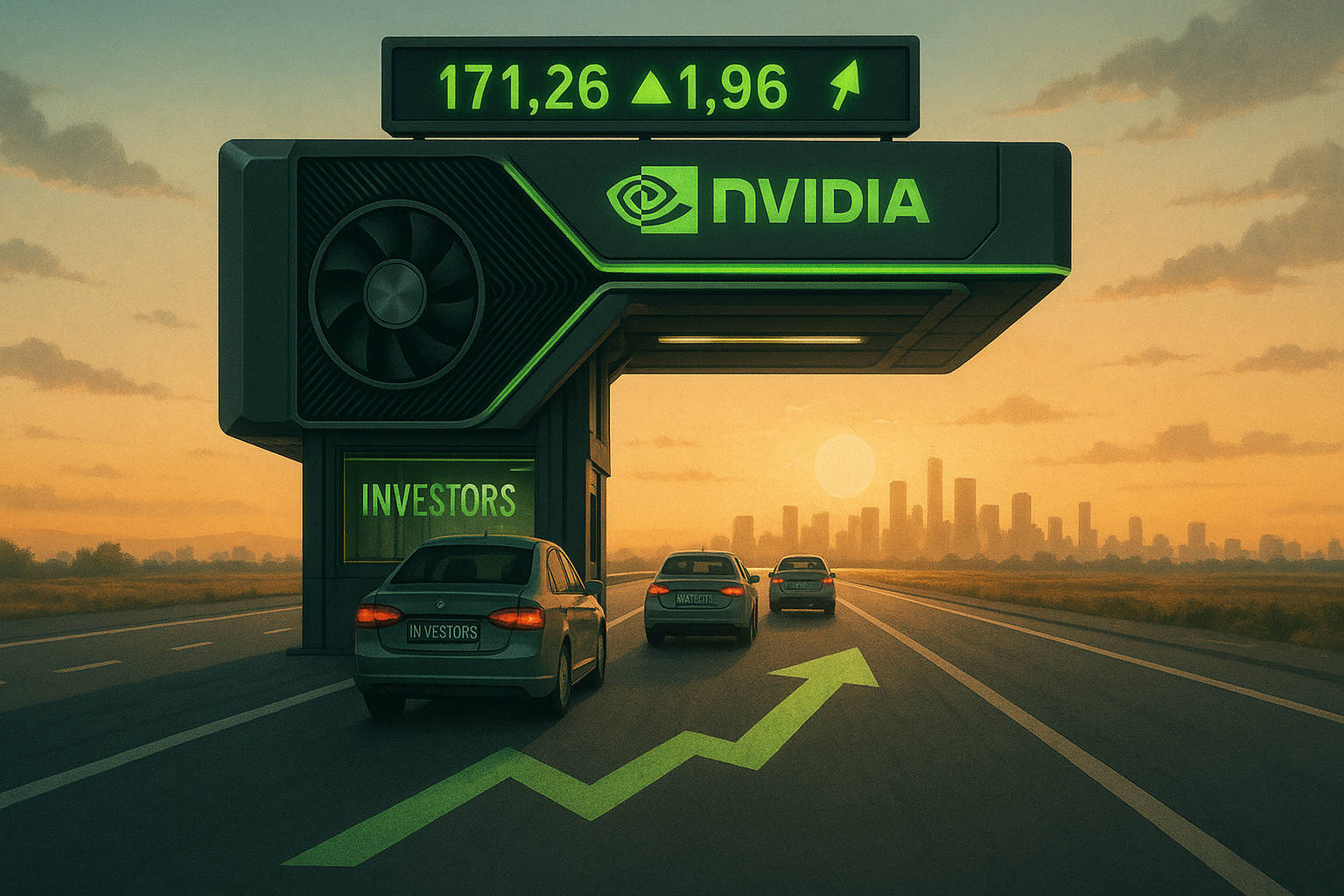Look, the stock market loves nothing more than making fools of us all. Case in point: Nvidia's relentless climb past $150, threatening to blow past January highs in a way that has many of us (yours truly included) questioning everything we thought we knew about market dynamics.
Remember that spectacular flameout earlier this year? When NVDA tanked to the $90s amid Trump's China chip restrictions and all that Huawei drama? That was supposed to be more than a speed bump. A legitimate correction. A return to sanity.
Except... it wasn't.
Instead, we've witnessed stellar earnings, Middle Eastern sovereign wealth funds pouring in cash, and analysts casually tossing around $250 price targets like they're discussing weekend weather forecasts. Makes you wonder what you're missing.
What's happening with Nvidia requires a deeper examination. I've been covering tech stocks for years, and this phenomenon represents something I've started calling "narrative acceleration in monopolistic innovation markets." (Bit of a mouthful, I know.) The framework works like this: When a company absolutely dominates an emerging paradigm-shifting technology, traditional valuation metrics get temporarily tossed out the window as investors price in not just current dominance but the expected value of future ecosystem control.
This isn't just another chip maker we're talking about. Nvidia isn't selling picks and shovels during a gold rush—they're selling the only industrial mining equipment that actually works at scale, while simultaneously designing the refineries. That changes everything.
Is a $6 trillion market cap absurd? By any conventional metric, you bet your bottom dollar it is. But then again, how exactly do you properly value the company that's essentially become the tollbooth operator on the highway to artificial general intelligence?
For investors, the decision now breaks down into three basic approaches:
Ride the momentum with tight stop-losses. Essentially saying, "This looks bonkers but I'm not arrogant enough to think I can time the top."
Hold through volatility because you believe even these astronomical valuations underestimate the long-term AI market opportunity. (The true believers)
Reduce exposure while maintaining some position—acknowledging both the legitimate growth story and those utterly unsustainable valuation metrics.
If you're experiencing FOMO after watching from the sidelines—and who isn't?—consider this sobering thought: Every generation of investors has its canonical "missed opportunity" that haunts them forever. Apple for some, Amazon for others. The psychological temptation to chase performance grows precisely when the risk/reward ratio deteriorates. That's not saying Nvidia won't continue higher—it very well might—but entry points matter tremendously in these high-volatility growth stories.
The competitive landscape deserves close attention. While AMD and Broadcom offer alternative exposure to similar trends, there's something qualitatively different about Nvidia's position. They've created this comprehensive ecosystem around CUDA that represents a formidable moat. The comparison isn't Intel vs. AMD; it's more like early Microsoft Windows dominance, where the ecosystem became self-reinforcing.
What makes the Nvidia story so fascinating isn't just the eye-popping stock action but what it reveals about market psychology during technological inflection points. We're watching in real-time as the market attempts to price a genuinely novel paradigm, with all the overshoots, corrections, and narrative volatility that implies.
Will I be adding to my position here? Probably not. Selling what I have? Also unlikely. Sometimes the wisest response to extraordinary market phenomena is a humble acknowledgment that precise valuation becomes nearly impossible during paradigm shifts, coupled with position sizing that lets you sleep at night regardless of which extreme scenario plays out.
The dance between Nvidia and the market continues to be a masterclass in the intersection of technological revolution, market psychology, and the fundamental limitations of financial forecasting. One thing's certain—it'll remain fascinating to watch.




